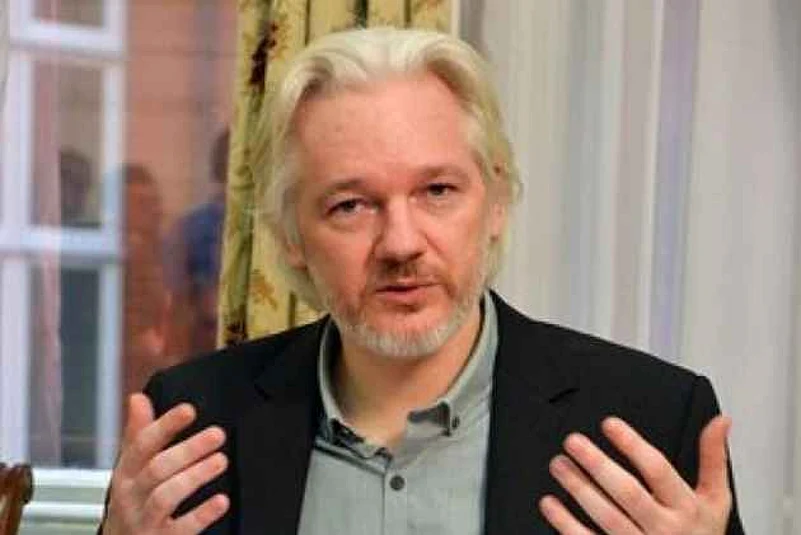Russian officials had devised a covert plan to help Wikileaks founder Julian Assange escape to Russia from his Ecuadorian embassy hideout in London, a UK media report claimed on Friday.
The 47-year-old Assange remains in hiding in a back room of the central London building six years after losing a legal battle against extradition to Sweden for questioning on allegations of rape and sexual assault. The Australian national had sought asylum from Ecuador over fears of further extradition to the US for sedition and espionage for leaking secretive documents on Wikileaks.
'The Guardian' has now claimed that Russian officials were involved in a "basic" plan to extract the Wikileaks founder from the embassy on Christmas Eve last year and fly him to Russia. The plot, said to have been abandoned at the last moment, was thought to have involved a diplomatic vehicle.
The newspaper said that details of the Assange escape plan are "sketchy". Two sources familiar with the inner workings of the Ecuadorian embassy said that Fidel Narváez, a close confidant of Assange who until recently served as Ecuador's London consul, had served as a point of contact with Moscow.
Assange and the embassy have denied the report, which comes days after the Associated Press announced it had obtained documents showing that Assange had applied for a Russian visa in November 2010, just before he was arrested by Scotland Yard.
Assange is a key figure in the ongoing US criminal investigation into Russia's attempts to sway the outcome of the 2016 presidential election. Robert Mueller, the special counsel conducting the investigation, filed criminal charges in July against a dozen Russian GRU military intelligence officers who allegedly hacked Democratic party servers during the presidential campaign. According to Mueller, WikiLeaks published "over 50,000 documents" stolen by Russian spies.
However, Assange has denied receiving the stolen emails from Russia.
The Russian embassy in London tweeted on Friday to say the 'Guardian' report was "another example of disinformation and fake news from the British media".
(PTI)

























